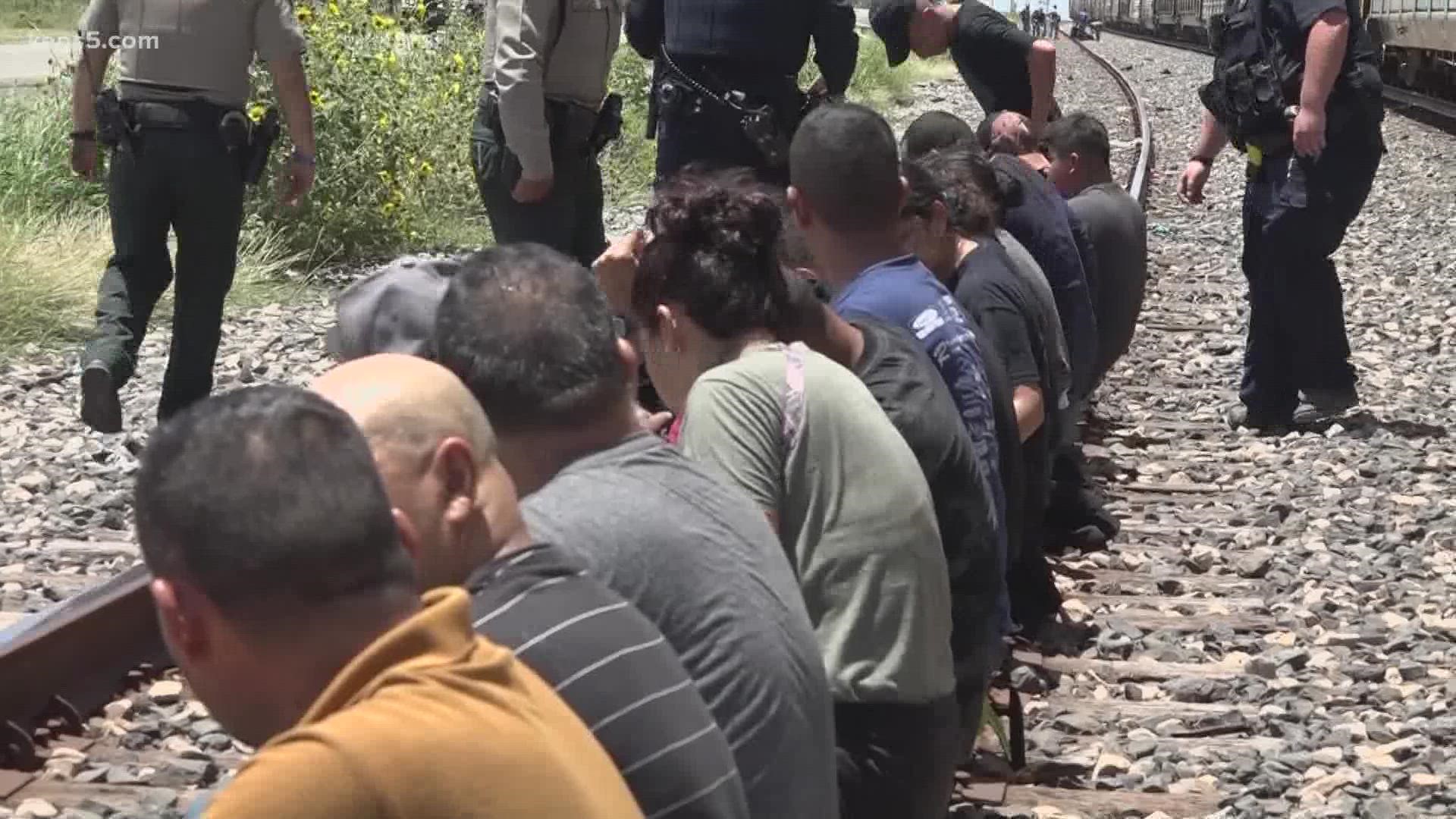UVALDE, Texas — As the surge of migrants continues along the southern border, officials in Uvalde County said the influx is having a significant impact on county resources.
Especially stretched thin is the Uvalde County Sheriff’s Office who have had to switch gears in the last few months, to focus primarily on immigration issues.
“It’s non-stop, day in and day out,” said Uvalde County Sheriff Ruben Nolasco.
Nolasco said there’s been a significant increase in the number of migrants that officers are finding on train cars trying to evade authorities.
Nolasco said human smuggling on train cars is not something new to the county, in years past, officers would discover on average of five migrants each day on the trains.
“Now you're looking at 40 to 50 on a daily basis that they're encountering, so that's a big increase,” said Nolasco.
On Tuesday, Border Patrol along with the assistance of the Uvalde County Sheriff’s Office, Uvalde Police Department, DPS, and the Texas National Guard discovered almost 50 migrants stowing away on the train.
Officials said the migrants were hiding inside brand-new GMC pick-up trucks, that were being transported inside the train cars.
It’s just one way that Nolasco said the migrant surge is impacting his county.
Nolasco was sworn into office in January, and said that same day, there was an incident with smugglers shooting at officers. He said since then the violence has continued to escalate.
“We're being met with a lot of resistance,” said Nolasco referring to recent incidents where officers were threatened by migrants or smugglers.
On Monday, Nolasco said officers encountered a group of Honduran migrants, and one of them pulled out a knife and threatened officers.
“Those are the dangers we’re encountering,” said Nolasco.
Nolasco said it’s not just the officers who are in danger.
He said residents have reported an uptick in burglaries and property damage, and the fear of the unknown running through their backyards.
“There's violence out there, they're not seeking asylum, they're running from us, fighting us,” said Nolasco.
The Uvalde County Sheriff’s Office has 16 deputies on the payroll to cover 1,600 square miles. Only three to four deputies are on duty at one time, and now Nolasco said they’re mostly responding to immigration issues.
He said the strain on resources is also putting citizens in danger.
“Could you imagine somebody in Utopia, for example, which is 45 miles from here, calls in for an emergency?,” said Nolasco. “God forbid.”
Nolasco said he needs help.
That was his message to District 23 Congressman Tony Gonzales who visited on Uvalde on Tuesday.
“We do have a problem that needs to stop,” said Nolasco.
Gonzales said bi-partisan legislation is in place to alleviate some of the issues these small counties are encountering along the border.
“After months of political pressure, the administration has finally sent three hundred ICE agents to both Del Rio and the RGV sector,” said Gonzales.
One of the initiative Gonzales advocates for is Operation Stonegarden which provides federal funding to help rural law enforcement with things like vehicles, gas, and overtime pay for deputies.
“That's what a lot of people don't realize that our counties here in Texas are massive. You've got the same responsibilities, but yet you have a fraction of the manpower,” said Gonzales.
Nolasco said he values the funding from Operation Stonegarden, and the extra help from Texas DPS Troopers, but he sees no end in sight as the surge continues.
“It's just getting worse,” said Nolasco. “I would love to see that day that we can go back to do what we're supposed to be doing and helping our citizens here.”
Gonzales said while he will continue to fight for stronger immigration policy, the crisis at the border is expanding elsewhere.
“Right now, it's kind of like out of sight, out of mind. You don't really feel it as much as some of these other communities,” said Gonzales. “But when there's going to be thousands of migrants that are going to be coming to San Antonio, the city will feel it and the city will be upset about it, just like every community along the border.”

